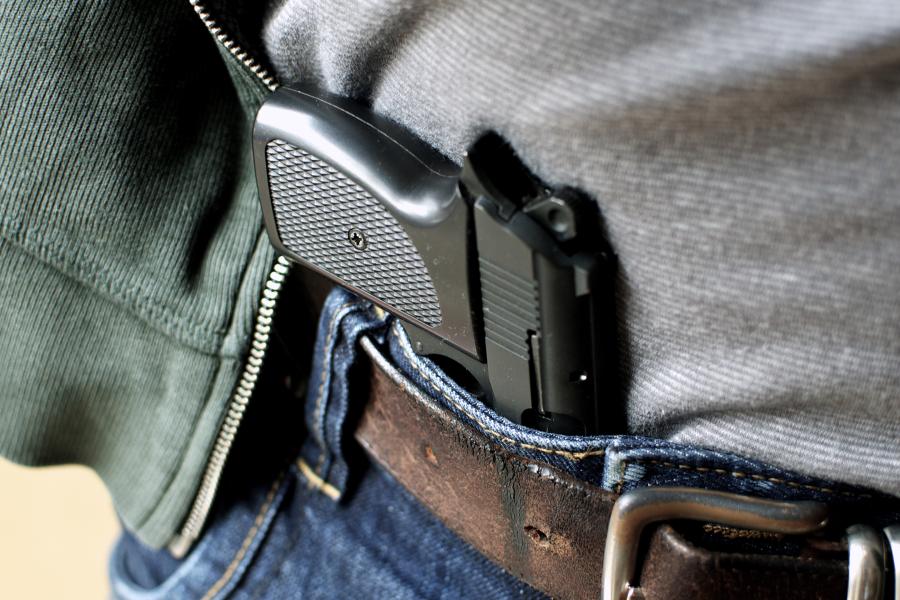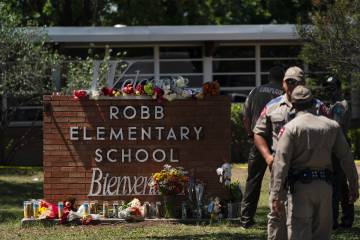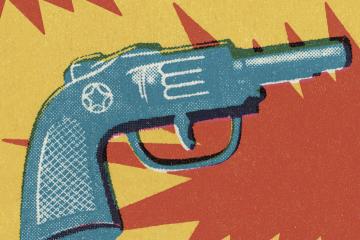Following a U.S. Supreme Court's ruling last week that loosens restrictions on carrying firearms in public in New York, gun violence is likely to increase, according to Daniel Webster, co-director of the Johns Hopkins Center for Gun Violence Solutions.
"This is obviously a very important decision that I think will have very detrimental impacts on public safety, based on research that we and others have done to try to understand the effects of state laws governing concealed carry," Webster said during a media briefing Friday. "We can expect that … we will see more gun violence after laws start to adapt to the Supreme Court ruling. "
In a 6-3 decision, the high court ruled that a New York law in place since 1913—which has required residents to demonstrate "proper cause" to carry concealed handguns in public for self-defense—conflicts with Second Amendment rights.
Beyond New York
The ruling raised immediate questions over similar laws in five other states and the District of Columbia, collectively home to one-quarter of the U.S. population. "States will want to act quickly to avoid legal challenges and having their laws struck down," said Alex McCourt, assistant professor of health policy and management at Johns Hopkins, and director of legal research for the Center for Gun Violence Solutions.
The affected states include Maryland, which has required gun owners to demonstrate a "good and substantial reason" to carry a concealed weapon, such as proving they're in danger or that they possess a high-security clearance. Removing that requirement would be the state's most concrete option for responding to the Supreme Court decision, McCourt said—or, less directly, it could remove that factor in gun permitting decisions.
Webster believes the ruling may prompt states to tighten up gun policies in other areas. They may "take a very close look at the general prohibiting conditions… like criminal convictions or domestic violence, restraining orders, those kinds of things," he said. "And they may also examine whether safety training requirements are sufficient, given that so many more people are going to be out and about carrying concealed guns."
School safety
A significant aspect of the decision, according to McCourt, is that it preserves states' rights "to prohibit guns in sensitive places, and that can include schools"—though he said there's no guarantee that will happen uniformly. Currently, he said, federal law prohibits guns in school zones, though there are some exceptions for those with concealed carry licenses. "So states will have to make adjustments," he said.
Also see
Odis Johnson, executive director of the Johns Hopkins Center for Safe and Healthy Schools, expressed concerns about the "possible unintended consequences … of the New York case on the abilities of schools to actually maintain safe and healthy environments." In particular, he noted calls for arming teachers in the aftermath of the Uvalde school shooting last month.
"The sky is not falling"
McCourt acknowledged that the Supreme Court's move represents "a massive moment in gun policy [that] will lead to a wave of litigation and probably more laws [being] struck down." But he emphasized: "The sky is not falling with respect to state and federal gun laws. There's still a lot of things that states can do and are doing to reduce gun violence and the court decision just changes that a bit."
The day following the high court's ruling, the U.S. saw another historic moment for gun policy in the bipartisan gun safety bill the Senate passed 63-33—the first such measure to clear Congress in nearly three decades. The bill—which President Joe Biden signed into law on Saturday—focuses on mental health and school safety, and incentivizes states to pass so-called red flag laws.
Posted in Health, Politics+Society
Tagged education, gun policy, center for gun violence solutions, gun control, gun violence










